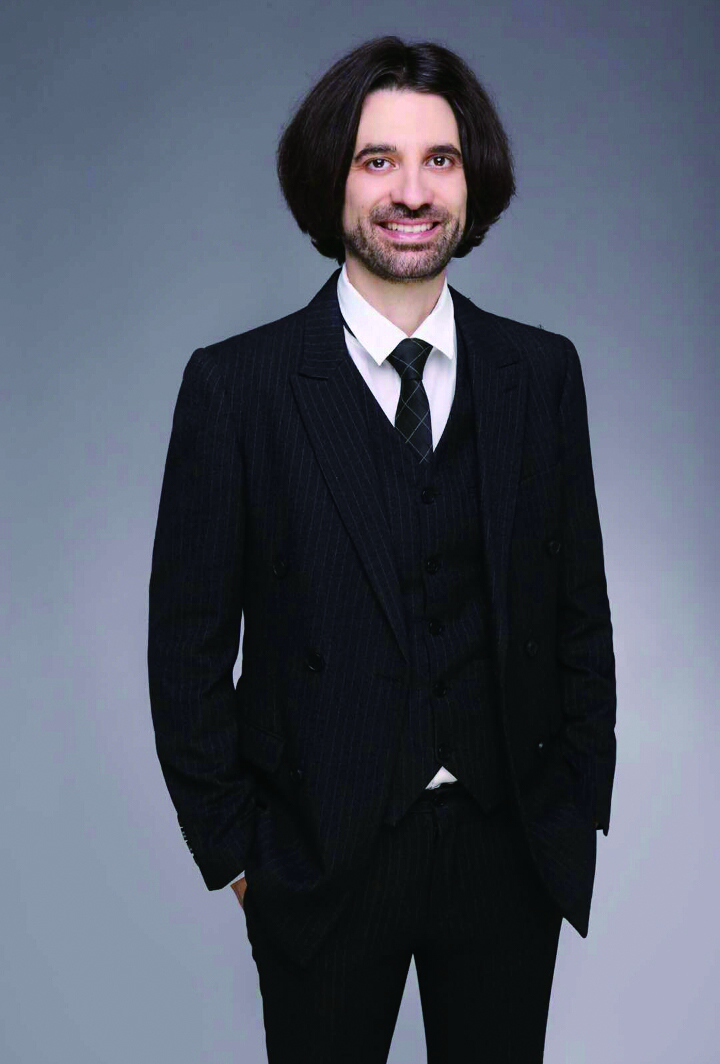
Matteo Preabianca
My best memory in China is about elder people. If young people in Europe are the ones who make the most noise and create problems, in China it is exactly the opposite. Not only the young people, the people that are of vitality and that friendly are the elderly. Just walk in the evening, around 6pm or, in the summer after 8pm, they all find themselves dancing like crazy. I like their attitude: they don’t care if they can’t dance. They enjoy life. Of course, even in the eyes of a foreigner, you can understand how the relationships between young and old, with a middle generation, that of their parents, are not at all simple. They are very different. In a few years this country has made technological leaps forward and what their parents, but especially their grandparents, did not have what young people already have in their cradles. Nevertheless, their old people have something young people lack, totally or partially: conviviality. They are able to make a group, to be always in company, even when they are not doing anything or just arguing with each other. My students, dear readers, do not have it or simply do not know how to do it. I see them around, with turtle necks poured into mobile phones, everywhere. The elderly, not having had it, even if they have it now, do not spend all their time using it. I’m not judging: no one is better than no one else. I just observe, intrigued.
One evening, I went out to see an American friend of mine. Arriving at Xueyuan Road, I heard a terrible and loud music. There were elderly ladies who were dancing seriously to horrible techno music. Their dance was not bad at all. They were moving gracefully like a Swan Ball choreography. I stopped to watch them and wondered how they didn’t understand that those wild disco notes were not suitable for their sweet movements. I think it’s healthy for them to do some physical activity, having fun. In the end, it’s enough to be in company.
But if a foreigner wants to admire the sociality of Chinese elders, he or she needs to go to the parks, those little squares on the west side of the West Lake, almost hidden by the leaves of the trees. There are a lot of old people who spend the best moments of the last part of their lives dancing and singing. There is also one who pretends to play the saxophone, because he likes. That’s it. Besides the usual people who dance, from Latin music to the Chinese music of their youth, there are also people who play and sing. The best are those on Sundays. They have created a sort of orchestra with winds, brass and tenors. They sing revolutionary songs. I don’t quite understand the meaning of the lyrics, but I imagine them as young people when they went proudly to the front, to protect the country from foreign invaders, especially Japanese.
In my little street where I stayed, there were two very nice old people. The first one was at the entrance of the street. I didn’t (and still don’t) know how old he was because for foreigners it is difficult to pinpoint the age of an Asian from the Far East, and vice versa. He was there all day under an umbrella leaning on the sidewalk, polishing his shoes and smoking a cigarette. Now how many people are interested in having their shoes shined these days, I don’t know. But he didn’t care. From 7 o’clock in the morning to 5 o’clock in the afternoon, you could find him there. Someone went to him to chat. Sometimes it looked more like an open-air bar. The other one was my trusted greengrocer. He looked older than the shoemaker. In winter he wore a Soviet hat and smiled with few teeth in his mouth. He was a calm guy and full of life. Together with his family, consisting of his wife, daughter, son-in-law and nephew, he managed a small fruit & vegetable store in which he had everything.
Even shops are different in China, compared to Italy. We have everything in order, the fruit is washed and arranged with a certain criterion. Not in these kinds of Chinese shops, which I prefer. In fact, I went there with pleasure to do shopping. By now the old man knew me and always gave me a discount. He kept giving me some chives although I knew absolutely nothing about cooking, but it seems rude for me to say no, so I took and then gave them to others. Always using cash, I tried to give him the correct sum, but he would wave me off, not taking the coins. He didn’t care, and he didn’t want to waste time. After a few times, I tried to talk to him, afraid he didn’t understand me, but what a surprise! He was very happy that I could speak a bit Mandarin. He told me there were two other Waiguoren (foreigners) who came to his place, but never say a word. He asked me where I came from. “Italy,” I answered him. He looked at a friend of his close by and said, “See? Italians know Mandarin, unlike that American who sometimes passes through here”. I laughed, satisfied that I was thought to be “better” than that American.
The best meeting with an elderly person took place outside a Starbucks of Hangzhou’s Euro American Center, where many foreign companies and international organizations are based.
I was sitting on a bench, when an old gentleman approached and exclaimed “Hello.” I answered “Hello” and returned to my phone. He continued, “Hello, how are you?” “I am fine, you?” Because of that, the conversation didn’t stop. He kept asking me questions. His English wasn’t excellent but, given his age (he could be around 80), it was admirable because he made an effort and could be understood. Suddenly, he changed his language and spoke to me in German, Russian, Italian, French, Spanish, Portuguese. With the exception of the first one, I could more or less understand all the others. Whenever he asked me a question, he would like me to reassure him about my understanding. When I answered affirmatively, he was happy and started to use another language. I recorded everything with my mobile phone because I wanted to use it to spur my students on. Our conversation continued for more than thirty minutes. It’s not a deep conversation, but we did get to know each other a little. In the end, when I asked him how he knew all those languages, believing he was a retired university professor, he replied “driving the taxi for thirty years” “And how?” “Every time a foreigner got on board, I would be nice and ask him for a sentence in his own language. Most of the time they didn’t understand Mandarin. I used the little bit of English or Russian I learned in schools and with friends, to translate in sentences in other languages to myself. And I recorded them. Then I would go home and fall asleep, listening to them. After years of repetition, I memorized key phrases for a basic conversation. Now I’m retired so I have even more time to review them and, living in the area, I spend every afternoon here looking for Waiguoren like you to practice. Sorry for the trouble”. Such a fascinating story and such an interesting man.
Editor:Huang Yan
